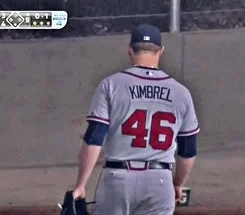If corporations treat
millionaire assets this way, imagine how they’ll treat you.
By Brian Wakamo
 Major League Baseball has a
problem on its hands: Teams are making record revenues thanks to massive
regional cable deals. But more than ever, those teams aren’t signing players.
They’re becoming cheapskates.
Major League Baseball has a
problem on its hands: Teams are making record revenues thanks to massive
regional cable deals. But more than ever, those teams aren’t signing players.
They’re becoming cheapskates.
Take, for example, Craig
Kimbrel and Dallas Keuchel.
Kimbrel is one of the greatest
relief pitchers of all time — he’s the youngest player to reach 300 saves in MLB history — and as of
today, he remains unsigned.
Keuchel won the Cy Young award given to the best pitcher in the league in 2015, and won a World Series with the Houston Astros. But he too remains unsigned.
Keuchel won the Cy Young award given to the best pitcher in the league in 2015, and won a World Series with the Houston Astros. But he too remains unsigned.
Even players like Bryce Harper
and Manny Machado, the marquee free agents of this past year, got slightly
shafted out of deals that would’ve truly paid them what they’re worth.
MLB teams waited and put off signing them to drive their price down
— which might seem absurd, seeing as those two ultimately signed deals paying them $300 million or more. But
their value to their teams is so high that they could’ve been paid more.
Teams wait to bring players up
to the majors because of a “service time” rule. That rule says that if
a league player is on a major league roster for 172 days out of the 187-day MLB
regular season, he’s “earned” a year of service time. But that’s being manipulated to keep young players on
cheaper contracts for longer periods of time.
Basically, teams won’t call up
talented and valuable youngsters to the majors until enough days have passed
that they can’t earn a year of service time. Therefore, that young player is
forced to stay on a team for an extra year on a smaller contract. Past MVP Kris
Bryant is an outspoken victim of this manipulation.
Vlad Guerrero Jr., the
extremely talented son of famed slugger and bad ball hitter Vladimir Guerrero, is another, while Harper had a similar situation occur when he was still
on the Washington Nationals.
What all of this does is
deprive the fans of seeing their teams at their best.
Harper and Machado being signed
late means they enjoyed less time acclimating to their new teams. Keuchel and
Kimbrel remaining unsigned means that teams are actively worse because they
don’t have those players.
Postponing someone like Guerrero Jr. from playing prevents fans from seeing him make extraordinary plays, and from making an impact for their teams.
Postponing someone like Guerrero Jr. from playing prevents fans from seeing him make extraordinary plays, and from making an impact for their teams.
It also hurts the players
themselves. They’re not getting the full benefits of their work because of the
billionaires who own these teams seemingly colluding to prevent paying these
players and to keep them tied down for longer.
Why should we care about the
paychecks of millionaire athletes? Because they’re a highly public example of
what many much lower-wage workers experience in their own lives.
In the broader economy, the
rise of contract employment has allowed employers to avoid paying benefits and suppress wages. Other
employers will manipulate part-time vs. full-time classifications for the
exact same reason.
These baseball teams are acting
like modern-day corporations, in other words.
But professional baseball players
have a resource many other workers no longer enjoy: a powerful union. That
union should step up to protect their players — and to show workers at all
levels that they can do the same.
What can the fans do? Let your
team know they need to splash the cash and build their best teams.And don’t
forget: If corporations treat millionaire assets this way, imagine how they’ll
treat you.
Brian Wakamo is a research
assistant on the Global Economy Project at the Institute for Policy Studies.
Distributed by OtherWords.org.